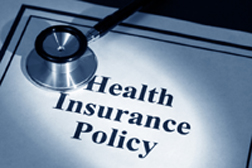How To Reduce Cholesterol The Right Way

You might be wondering why it’s such a big deal to know how to reduce cholesterol, and why there is such a clamor for natural methods of doing it. Too much bad cholesterol in the body, if you must know, can choke up your arteries, and when that happens, strokes or heart attacks cannot be far behind. There are medical treatments available to reduce bad cholesterol levels, but besides being costly, chemically-formulated cholesterol reducing drugs usually have undesirable side effects. While it is always a smart decision to consult with a heart specialist (who is likely to prescribe medications), going for alternative means to lower cholesterol levels may also be a good idea, especially if the levels are not dangerously high (slightly above 100 mg/dL) and the good cholesterol levels are normal or just a bit below the normal level.
If you happen to consider taking the traditional route to reducing bad cholesterol levels, you can start by having a resolution and sticking to it. Lowering the numbers is not at all difficult once you have set your mind to it. Next, empty your refrigerator and pantry of everything that has saturated fat. Junk foods, cakes, ice cream, macaroni and cheese, and foods with preservatives have to go, whether you like it or not. Try to keep away from fried foods also, especially those that are deep fried in animal fat. While these food choices do taste good and are very tempting to eat especially when it’s close to midnight, these can also lead you to your deathbed if you are not careful.
When doing your groceries the next time, pick foods that have high fiber content. Why fiber? Because fiber has the capability of absorbing the bad cholesterol from the digestive system, so instead of it going around in the blood stream and rounding up in the arteries, it goes right out of the body. Fiber rich foods include oatmeal, beans, and fruits like apple, pear, and prunes. Also recommended to snack on to reduce bad cholesterol levels are walnuts because walnuts have high polyunsaturated fatty acids which are actually good in maintaining heart health.
Fish, especially the oily kind, can help reduce the risk of heart attacks that may result from too high bad cholesterol levels. Fish contains omega-3 fatty acids that thin the blood, lowering one’s blood pressure. Eating fish or taking fish oil supplements on a regular basis is recommended in this case.
